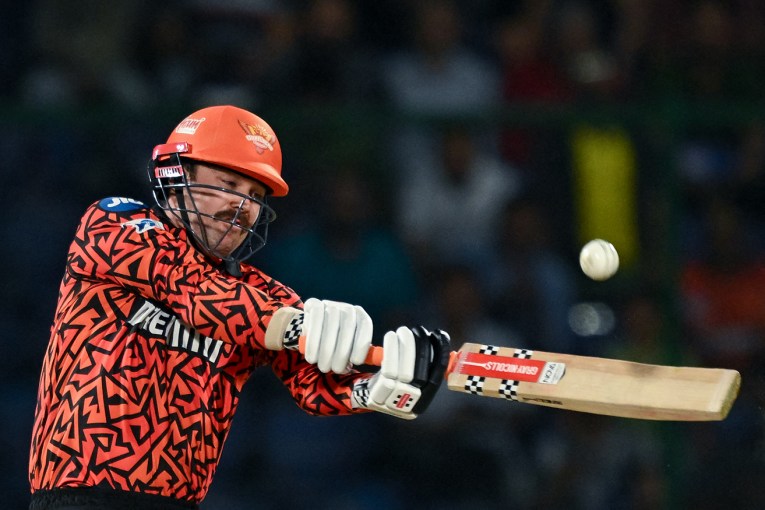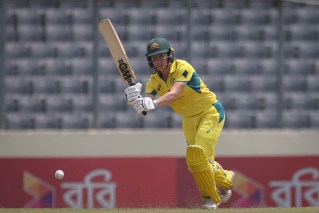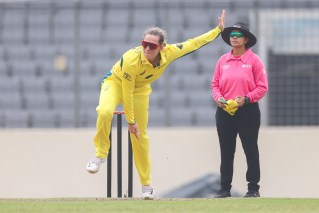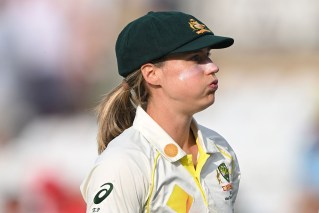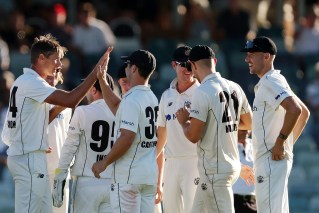ICC and the Big Three: More questions than answers

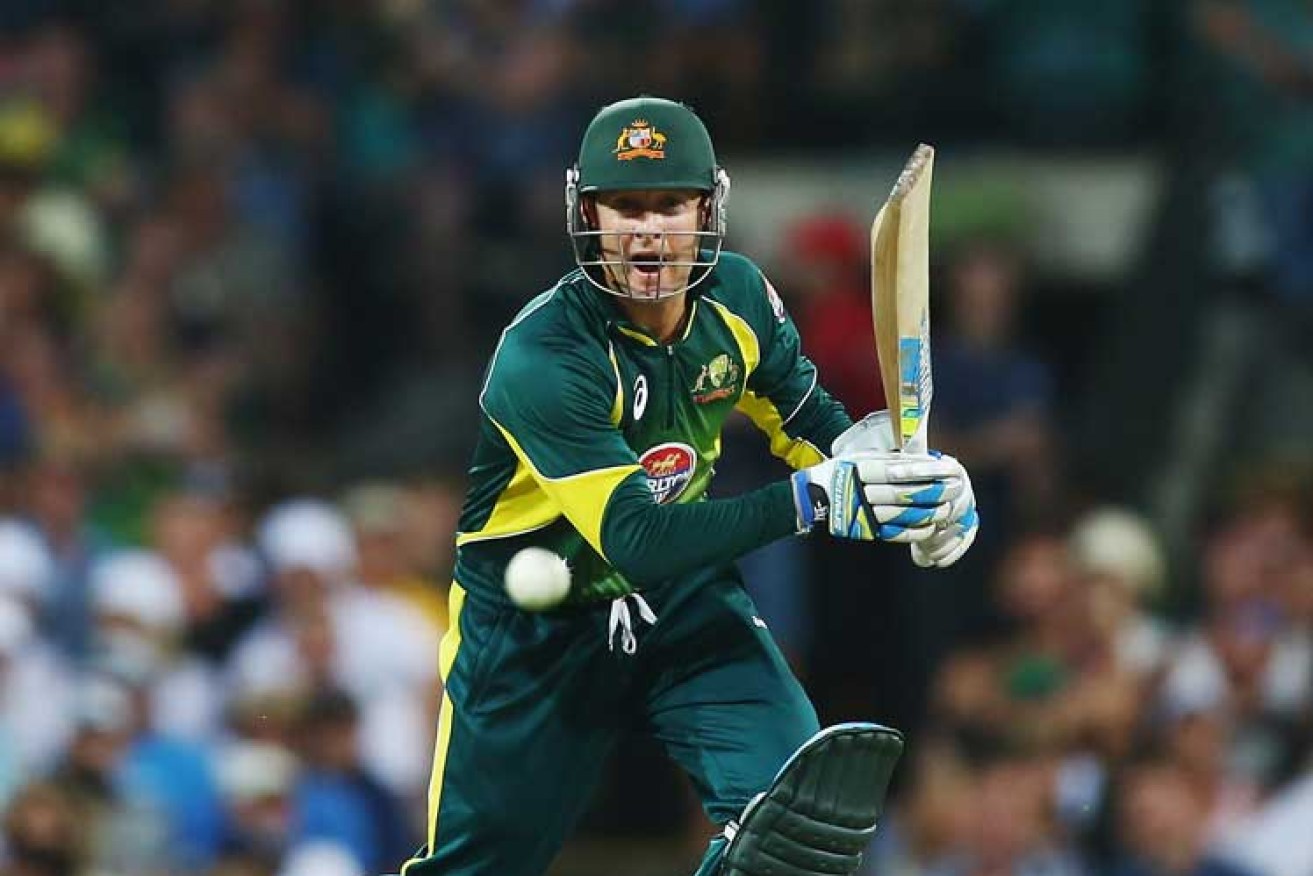
Getty
• Atherton slams ‘big three’ plan
• Cricket’s ‘big three’ accused of trying to hijack game
Like a lot of cricket fans over the past week, I’ve been struggling to comprehend the motives of the so-called ‘Big Three’, the Board of Control for Cricket in India, the England Cricket Board, and Cricket Australia.
The devil in the detail of the leaked “Position Paper” last week was noticeably, and probably deliberately thin. Nevertheless, it was still enough to see what was in play: the three biggest cricketing nations in terms of commercial value were taking to the theoretical pie of global cricket funding with a previously unknown, yet astonishingly brazen new knife.
They brought in all the revenue, and they deserved the biggest slices, the paper said.
In truth, the Position Paper simply confirmed what everyone already thought of Indian cricket administrators, and their general attitude that everyone else should be bowing at their almighty profit-making feet and be grateful for whatever scraps were offered. But England and Australia now as well?
In fairness, Cricket Australia’s own strategy and vision only refers to looking after cricket in Australia, not the rest of the world. I’m quite sure they believe they’re acting in the best interests of Australian cricket, even if it looks like they’re part of a plan that puts their own interests ahead of others.

Australia is looking out for number one. Photo: Getty
Regardless, events at the International Cricket Council’s Board meeting in Dubai this week have done nothing to reduce all that head-scratching. The ICC’s media release came out after the first day of a meeting proclaiming “unanimous support for key principles”, which for all intents and purposes sounded like the ‘Small Seven’, as the remaining Full Member nations have become known, were grateful for the opportunity to be politically decimated by the Big Three.
What does it all mean?
Happily, that “unanimous support for key principles” amounted to a significant watering down of many elements initially proposed in the Position Paper.
Most notably, the suggested two-tiers of Test cricket have been scrapped, replaced by “opportunity for all Members to play all formats of cricket on merit”. There is no promotion and relegation (or immunity from relegation for Australia, England, and India), and more importantly, no chance of any Full Member losing their Test status. For Associate Members like Ireland, the opportunity to play Test Cricket may even come sooner.
The proposed Test Cricket Fund that was to have paid out annually and evenly will be extended to include South Africa, who were initially excluded from such a fund.
It does mean that the fund, created to “encourage and support Test match cricket”, will pay out the same amount to current the World No.1 South Africa as it would to Zimbabwe, whose players remain on strike, whose domestic competition is in limbo, and whose governing body remains wracked with corruption, with debts of well over $15 Million. That’s perhaps another argument for another day.
The much-anticipated Test Cricket Championship has again – and probably permanently now – been consigned to the ‘too hard’ basket, with yet another rebirth of the Champions Trophy, thought to have been played for the last time in 2013.
The Champions Trophy would be one of three ICC events played in every four year cycle (the World Twenty20, and the 50-over World Cup being the other two), and of which the BCCI, ECB, and CA will get a nice windfall, due to a need “to recognise the varying contribution of Full Members to the value of ICC events through the payment of ‘contribution costs’”.
This is the big-ticket item as far as the Big Three are concerned. If they’re bringing in the big broadcasting bikkies, they believe they’re entitled to a generous share of the enormous profits.
Trouble in paradise
I can’t help but wonder if some proposed items, particularly the two tiers of Test Cricket, have been watered down to ensure this item remains, in much the same way a football coach will argue long and hard for a lesser player to be picked, so as to lessen the debate around a slowing champion.
There are some worrying elements within the supposedly unanimously supported principles though.
If India doesn’t want to go to the Caribbean, you won’t be able to make them. The way they’re currently being outplayed by the Black Caps, New Zealand perhaps shouldn’t bank on a return any time soon, either.
For one, the Future Tours Program will be scrapped, in favour of “Mutually agreed bilateral FTP Agreements”.
The West Indies made mention of this in their statement, saying reverting to bilateral agreements would give the WICB “greater opportunity to enhance its financial position to the benefit of West Indies cricket.” That’s true to a degree, but what it really means is the Big Three can decide who they want to play, where they’ll play, and how often, from 2015 through to 2023.
And while Australia and England have already declared they will look to play a minimum number of fixtures against all Test nations in that timeframe, India have made no such guarantees. If India doesn’t want to go to the Caribbean, you won’t be able to make them. The way they’re currently being outplayed by the Black Caps, New Zealand perhaps shouldn’t bank on a return any time soon, either.
Under a new governance structure for the next two years of transition, the ICC will be chaired by a representative of the BCCI, the newly formed Executive Committee by a CA rep, and the new Financial & Commercial Affairs Committee by an ECB rep. The two new committees will comprise two other members alongside the BCCI, CA, and ECB delegates, and while “anybody from within ExCo and F&CA can be elected to Chair those Committees,” it’s hard to believe the Big Three will vote for anyone but themselves.
Not surprisingly, several of the Small Seven have pushed back on the claims of “unanimous support”, with Pakistan, South Africa, Sri Lanka, and Bangladesh all suggesting that nothing had been agreed to at all, and they wouldn’t be doing any such thing until all proposals and principles had been discussed by their respective national boards.
So despite some grand claims, it seems like all decisions and agreements have been put off until the next ICC board meeting in February. While that is something of a win in the short term, cricket fans can be assured that the proper rounds of horse-trading will commence in earnest over the coming weeks.
Indeed, ICC Chairman Alan Isaac said as much in their initial statement: “Extensive work will now be undertaken in advance of a follow-up Board meeting next month.”
Which probably just means the Small Seven will line up to offer to scratch the backs of the Big Three. And cricket fans will continue to scratch their heads.
Whether we like it or not, the way world cricket is run is about to change.
